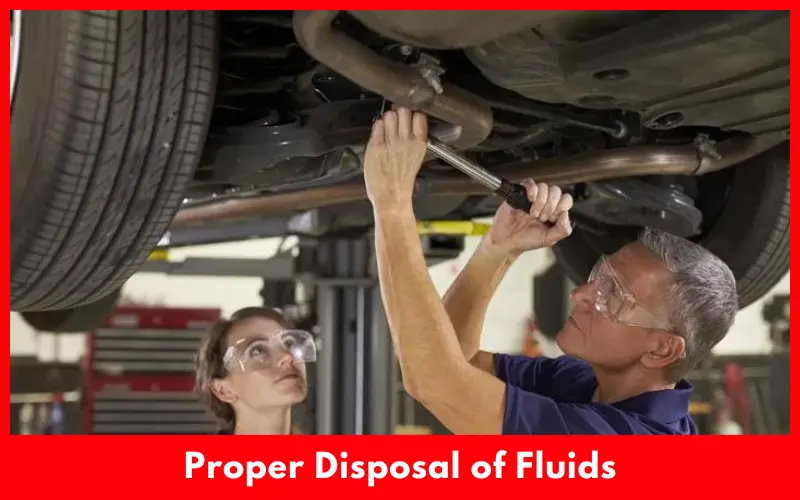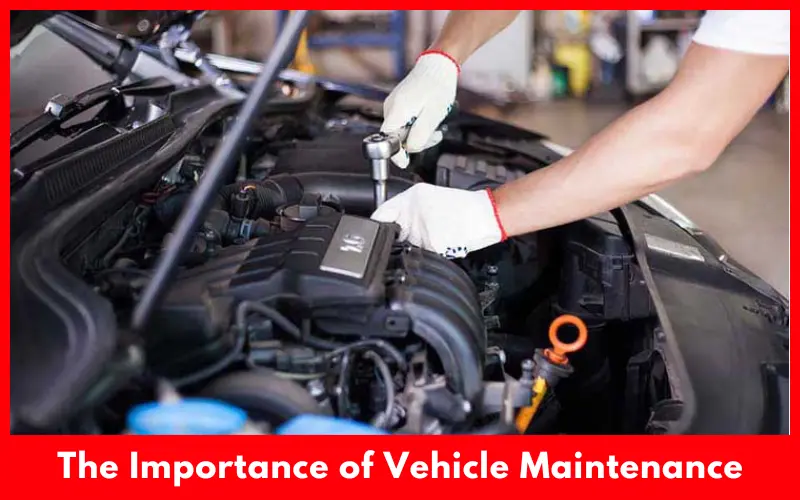The importance of vehicle maintenance is undoubtably money saver from a huge repair. Every vehicle owner must know the routine vehicle maintenances checklist.
Purchasing a vehicle in a timely manner, of course, it is important to choose a well-known, professional and quality-focused dealer, an example of which is Dyler.
Please note that it is not very cheap to keep the vehicle alive. On average, one pays $900 per year on common maintenance to their cars. Compared to the repairing money which you will avail for a damaged car and add a minus figure to this figure keeping in mind that vehicle parts are very costly these days.
Article Summary
The Basics of Vehicle Maintenance
A vehicle, for example, is a machine consisting of thousands of disparate and different parts. Maintenance is the solution to keep that machine functioning properly and not let the team down when it is needed most.
Routine Inspections
Vehicle maintenance includes performing routine checkups called inspections, which help s with oil, brakes, tires, and other crucial parts. It is estimated by AAA that 13,000 car accidents per year can be avoided by keeping vehicles in regular good condition.
Oil Changes
Perhaps the most basic of automotive maintenance activities is the periodic changing of oil. The engine runs smoothly and avoids overheating and other issues when drivers change their oil every 3,000 or 5,000 miles (depending on the vehicle make).
Tire Maintenance
You should be doing proper tire maintenance regularly like rotating and recalibrating. This will help you with smoother driving even at high-speed roads. In the report from the National Highway Traffic Safety Administration (NHTSA) in the year of 2022, 562 deaths were caused by the tire.
Taking good care of your tires will not only help you from being in an accident, but it also will provide you with high fuel efficiency.
The Cost-Saving Importance of Vehicle Maintenance
Let us consider looking into how vehicle maintenance can help save cost.
Preventing Major Repairs
Proper care can lower your expense through avoiding appliance or vehicle repair; say for an engine the replacement could be between $1,500 and $8000, yet oil-change could be between $20 and $50 for simple check up.
Careful attention to minor enquiries would lessen the efforts required for cover-up expensive bills.
Improving Fuel Efficiency
Your car runs smoother (and spends less at the filling station) when it doesn’t leak, burn, or pour oil. A car that is in good shape uses 4 to 6 percent less gas.
And if you catch a serious maintenance problem, like a faulty oxygen sensor, your mileage can improve by as much as 40 per cent, says the US Department of Energy.
Extending Vehicle Lifespan
Proper maintenance can keep your car running for a long time. With regular service, a car’s lifetime can exceed 200,000 miles. By contrast, a neglected car usually fails early.
Enhancing Safety Through Maintenance
Better outcome by avoiding rather than remedying. Last but not least, taking care of your vehicle is the best way to keep lives safe and your car at its best.
Brake Checks
It is very important to check your brake system to avoid collision, you’ll end up in a serious accident. Bad brakes are the major factor in crashes, and according to the report from the NHTSA, around 22 percent of crashes caused by mechanical failure are related to brakes.
Consequently, having your brake pads service is avoiding accidents and saving lives.
Light and Signal Maintenance
Proper functioning of the lights and signals is crucial for safe driving, especially at night or in bad weather. checking your vehicle and changing the burnt bulb on a regular basis will help you avoid accidents at night and when you are not easily visible to others on the road.
Steering and Suspension
Keeping your vehicle’s steering and suspension in good shape is especially important because problems in these areas can lead to dangerous handling where you can lose control, especially at high speed.
However, regular checks and repairs in these areas can help you avoid such problems and stay safe on the road.
Environmental Impact of Vehicle Maintenance
Besides the redundancy in safety and economic terms, a regularly-minted car will render a favor to the environment.
Reducing Emissions
Maintaining your vehicle correctly might also decrease your vehicle’s environmental impact because a well-tuned engine uses less fuel, and therefore spews out fewer noxious fumes.
Proper Disposal of Fluids
Regular maintenance of vehicles also contributes to this problem. Fluids such as oil, coolant and brake fluid end up being poured away. They can be highly toxic.

Many service centers offer recycling programs for these fluids, helping to minimize environmental harm.
Common Maintenance Myths Debunked
We all know they’re important but, hey, they’re certainly not cheap… and if everything is working OK, there’s probably no reason to bother, is there? Let’s set the record straight and address some of the auto maintenance myths out there. Let’s start with diabetes.
Maintenance Costs Too Much Money: Some think the regular doses of maintenance are too expensive to take. However, lack of this dosage inescapably leads to more expensive repairs in the future. A regular routine maintenance is cheap and affordable to save your vehicle from heavy repair fees.
Maintenance Is Not Required: Some people also believe that new cars do not require maintenance. It is true that new cars most likely have fewer problems than old cars, but all cars require proofreading and maintenance to stay in a very good condition. New cars should also follow the maintenance per the manufacture schedule so that they can increase performance.
DIY Maintenance is Always Preferable: Most parts of appliances maintenance can be made at home, such as changing engine oil, fan belts, brake oil and flush gear oil. At the same type, there are some tasks that depend on expertise, such as all gearbox repair and wheel alignment.
If you attempt to do the repairs with insufficient knowledge, you may end up causing more damage. But even if you know your limits, knowing how to find someone else who knows their limits is an important strategy.
Creating a Maintenance Schedule
Perhaps you may be wondering what time is your ideal time and number of cars that can be maintained. Well here are steps for you to follow.
Monthly Checks: Take a few minutes each month to check your tyre pressure, your lights (including brake lights) and windshield wiper blades. It’s amazing what a quick once-over can catch.
Check your car every three months: Oil, battery and coolant Three months, check oil, battery recharge and coolant. Oil, battery, coolant – the key to your car’s life.
Bi-Annual Checks More frequent, multi-point checks – including brake checks, tire rotations and fluid top-offs – twice a year. Also, a good excuse to keep your car in good shape year-round.
Check Every Year: Get your vehicle completely inspected by your mechanic every year. Check your vehicle from the engine to the exhaust facilities checking all the components are in order.
Final Thoughts
Car maintenance is important for the security of your vehicle, your bag, and the people around. By doing regular checkups, and starting early repairs, the occurrence of an accident can be reduced, as well as extension of the duration of your vehicle use, and it becomes an eco-friendly way.
It is also necessary to explode some myths about your vehicle, and have a maintenance schedule so that your vehicle will run like a dream, and ensure your safety as a driver. By doing regular vehicle maintenance, you will appreciate your car even more.

